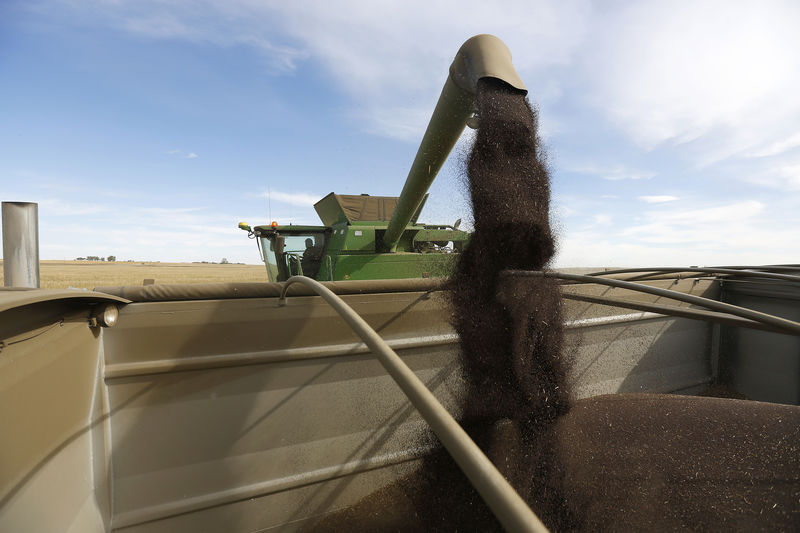By Steve Scherer and David Ljunggren
OTTAWA (Reuters) - The Canadian government, as expected, on Wednesday offered more financial assistance to canola seed farmers who have been hit by a Chinese ban on imports and said it was looking to diversify into other markets.
China is blocking imports of canola seed from two companies on the grounds that it discovered pests. The ban threatens to cause major problems for farmers, given that China is Canada's biggest export market for canola.
Agriculture Minister Marie-Claude Bibeau said that for 2019 an existing aid program would offer all farmers as much as C$1 million ($745,000), up from the current C$400,000. The interest-free portion of loans to canola farmers only will rise to C$500,000 from C$100,000.
Trade Minister Jim Carr said he would lead a trade mission to Japan and South Korea in early June in a bid to boost existing canola exports.
"Our government is taking action both at home and abroad to find lasting solutions to this situation. We will not rest until this issue is resolved for our Canadian producers, workers and their communities," he told a news conference with Bibeau.
Canada-China ties turned icy last December when police in Vancouver arrested Huawei Technologies Co Ltd Chief Financial Officer Meng Wanzhou on a U.S. warrant. She is awaiting an extradition hearing and is next due in court on May 8.
An expanding list of Canadian farm exports such as soybeans, peas and pork is hitting obstacles at Chinese ports.
Ottawa said in a statement it was "prepared to respond to support producers of other commodities should further trade actions occur".
Although the government of Prime Minister Justin Trudeau is under increasing pressure to retaliate against China, Carr said Ottawa wanted to focus for the time being on the scientific aspects of the case. Canada dismisses the suggestion of pests in its canola exports.
China accounts for about 40 percent of Canada's canola seed, oil and meal exports, according to the Canola Council, with seed exports to China worth some C$2.7 billion ($2 billion) a year. The council said the federal aid was good news.
Mike Ammeter, who farms near Sylvan Lake, Alberta, said the assistance would help farmers finance the cost of planting this year's crop.
"Cash flow has been a concern. It's a welcome announcement," he said by phone.
Farmers intend to plant their smallest canola crop in three years, down seven percent from 2018, according to a recent Statistics Canada survey.

(With additional reporting by Rod Nickel in Winnipeg; editing by Bernadette Baum, Jonathan Oatis and David Gregorio)